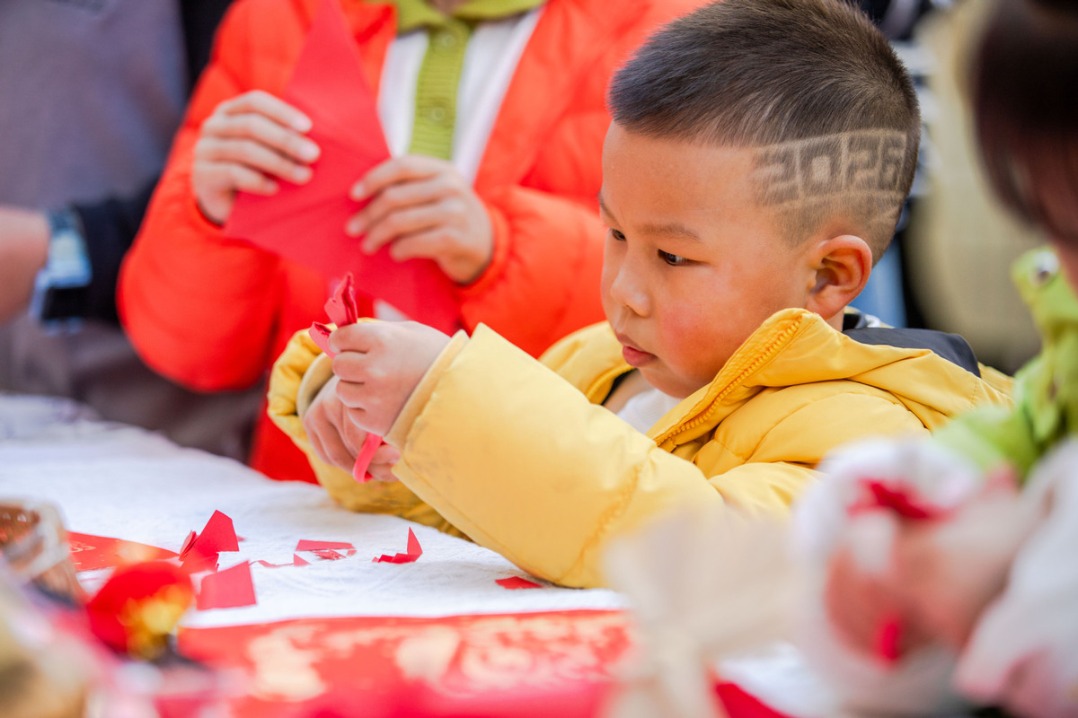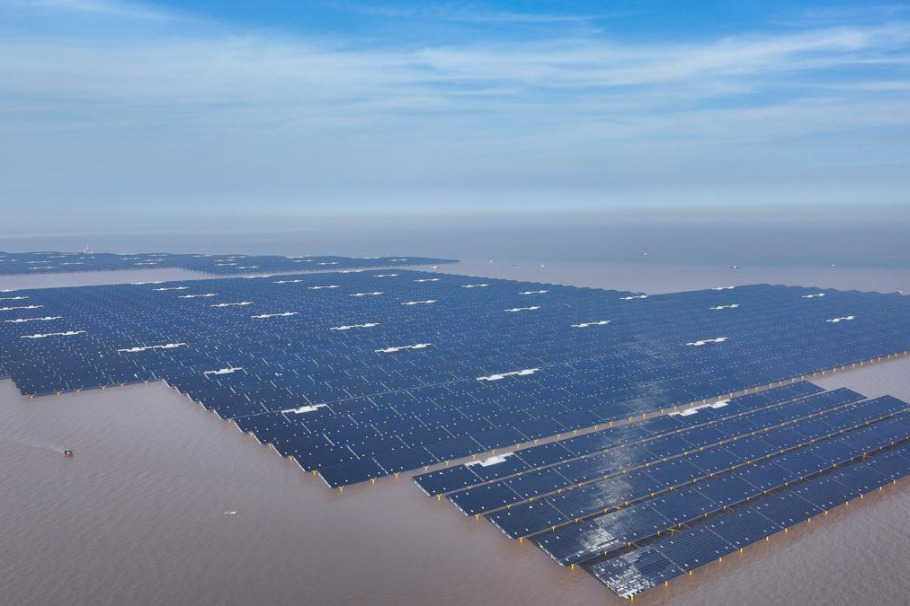'Happy stations' shelter Xinjiang herdsmen

While a biting wind blows over a remote pasture and frost covers the ground, herdsmen drink hot milk tea in houses as warm as spring.
Saying goodbye to stone or grass houses, herdsmen in Altay prefecture, Xinjiang Uygur autonomous region, have been provided with brand-new public houses called "happy stations" so that when they are working outside and encounter severe weather, extreme cold or exhaustion, they have a place to rest, warm up and shelter.
Hairat Lehul, 52, from Qinghe county, frequently visits a happy station to eat or take a shower.
"If I arrive late at night, I sleep there," he said, adding that workers at the stations also offer fodder grass and daily necessities.
Doctors at the station check his physical condition once a month, and veterinarians help control livestock epidemics.
"I'm satisfied with the environment and services," he said. "The station provides a lot of convenience."
Since 2017, Altay has spent more than 36.5 million yuan ($5.07 million) to build 164 happy stations along routes between pastures. They have benefited about 50,000 people, according to local authorities.
Fixed stations include a reading room, medical treatment room, veterinarian's room, canteen and dormitory. Mobile ones are set up for livestock and supplies.
The local government has dug wells at the stations and solar panels provide power. It is also building more signal towers.
"In the past, herders used to live in stone houses or felt tents during relocations. These were generally sufficient for everyday use, but during extreme winter weather conditions, they posed safety risks," said Erlan Salamhan, head of the animal husbandry department at Altay's agriculture and rural affairs bureau.
The happy stations provide accommodation and heating facilities, and are equipped with carbon monoxide detectors, improving conditions for herders during relocations, he added.
Some of the stations are built along roads leading to attractions. During seasons when herders use the stations less often, they are open to the public, receiving booked visitors and hosting activities, Erlan said.
Altay has also spent 110 million yuan building 523 houses and 466 folds for herdsmen.
Hatax Sabdulla, 55, moved to a new house at a winter pasture at no cost.
"Previously, when I went to the winter pasture, I lived in a simple felt tent," he said. "It was especially cold in winter and not safe, especially during extreme weather conditions when it was uninhabitable."
The new house has all the facilities the family may need, including a fireplace, wooden bed and electrical wiring. "It's warm, tidy and safe. We only need to bring our quilts and bowls, which has brought us great convenience," he said.
There is also an enclosed corral and outdoor courtyard. "During the day, we can graze our animals, and when we come back at night, we can secure them in the corral," he said. "Unlike before, we don't have to worry about wolves or the cold."
The family lives in the house for five months in the winter.
Erlan said the new infrastructure aims to improve production and living conditions in pastoral areas and enhance public services in animal husbandry.
- China sees continued improvement in women's health in 2024: statistical report
- PLA drills a stern warning to 'Taiwan independence' separatist forces, external interference: spokesperson
- China puts two technology demonstration satellites into orbit
- More Chinese cities add artificial hearts to medical insurance coverage
- China records continued improvement in child health in 2024
- China reports fewer coal mining accidents, fatalities in 2025





































